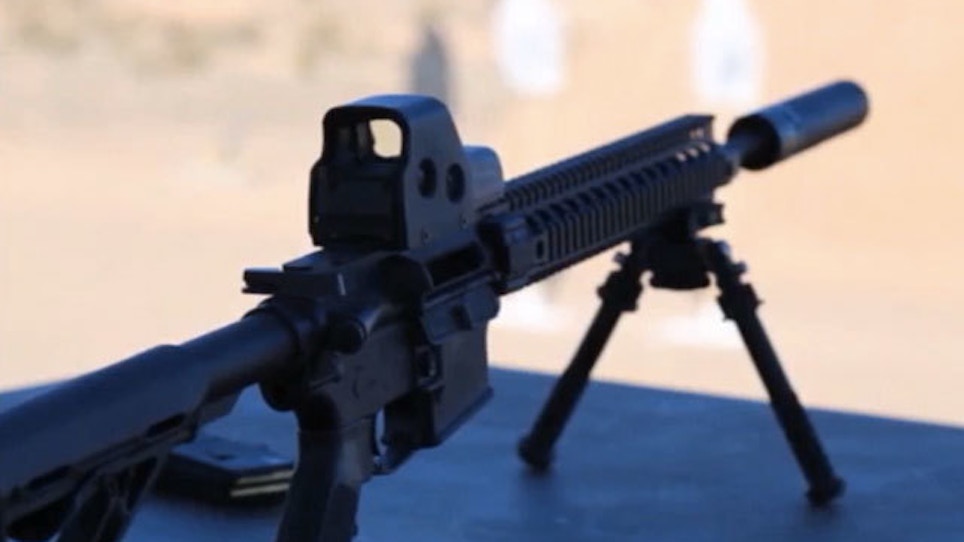By MARTY RONEY | Montgomery Advertiser
MONTGOMERY, Ala. (AP) — The woods in Alabama may be a bit quieter during future hunting seasons since the state's game department supports lifting of the ban of firearms suppressors for hunting.
The Conservation Advisory Board, the group that helps set policy and regulations for the Alabama Department of Conservation, approved the change.
The action is susceptible to legislative oversight, but the move likely will go forward, said Kevin Dodd, chief of the department's enforcement division.
“It's a big change, but the advisory board feels it's needed,” Dodd said. “The department looked at this long and hard, and we feel there are three primary reasons for the change. The biggest one is noise and recoil reduction when you fire a gun.
“We have been working for years to get more young people and women interested in hunting. For some people, the loud noise of a high-powered rifle going off is a problem.”
When a gun is fired, gases escape the muzzle, producing the well-known report. A suppressor captures those gases, reducing the noise level significantly.
Contrary to what some might think, and what Hollywood images might portray, a suppressor is not a silencer.
The device is attached to the muzzle of a rifle or handgun and muffles the sound of the gun being fired. With a suppressor, you still can recognize the sound as a gun going off, but the noise is reduced to such a level that it won't damage a person's hearing when they aren't using ear muffs or other protection.
Alabama would become the 33rd state in the country to allow the use of suppressors while hunting, according to the National Rifle Association's website.
Other reasons for lifting the ban include wildlife management and improving the image of hunting, Dodd said.
“We allow the hunting of feral hogs at night,” he said. “With a suppressor, you may be able to get off several shots instead of just one at a group of hogs. And more and more people are moving into the rural areas. We get a lot of complaints of people hunting too close to somebody's house.
“In reality, that rifle shot may be three miles away; it just sounds closer. Gunfire can make some people nervous, so using suppressors will help the image of hunters and hunting.”
But buying and legally registering a suppressor with the federal government is an expensive and lengthy process.
A quick Internet search shows suppressors for handguns and small-caliber rifles going from about $350 to more than $800. Suppressors for high-powered rifles are anywhere from $750 to more than $2,200.
The cost is based on materials used in construction, design and what caliber the suppressor is made for.
When hunters find out about the costs and what's involved, they might pass on buying a suppressor, said Ben Davis, a Prattville deer hunter.
“A lot of my friends have been talking about getting one,” he said. “Then they find out how expensive they are, and the fact you have to wait months to get approval. I'd just as soon spend that money on a better scope for my rifle.”
Suppressors fall under the National Firearms Act, which controls the sale and registration of machine guns, suppressors, short-barreled rifles and shotguns, and other devices, said Sara Jones, who works with the NFA branch of the Bureau of Alcohol, Tobacco, Firearms and Explosives.
Registering a suppressor includes filling out lengthy forms, in duplicate, with the person's name, personal information and information about the suppressor. Each form must be accompanied by a 2-inch-by-2-inch passport style photo of the applicant. Applicants also must provide their fingerprints to be used for an FBI criminal background check, and the chief law enforcement officer of the applicant's county, usually the sheriff, must sign the forms stating they know of no reason why the person should not have the suppressor.
Each registration also requires a one-time $200 transfer tax, she said. Jones said processing the forms takes about 10 months.
And not every gun shop can sell suppressors. It requires a special ATF license. Patriot Gun Sales in Montgomery sells suppressors. There's been an increase in customers asking about suppressors since the advisory board made its decision, but no real spike in sales, said Jim Allen, who runs the business with his father, Stan.
If you buy a suppressor from Patriot Gun Sales, the business will fill out the required forms. The applicant foots the bill for the transfer tax.
For years, suppressors had a nefarious image as being a poacher's tool, Dodd said. That explains why so many states in the past had banned their use in hunting. Those same states are now reversing their stands on suppressors and hunting, he said.
The likelihood of someone breaking the law with a legally registered suppressor is slim, Jim Allen said.
“I couldn't imagine people who are buying these things doing anything illegal with them,” he said. “It's quite a process. You have to have quite a clean background to buy one. I don't see an increase in poaching or night hunting at all.
“In fact, I think it'll do good things. It'll bring kids and people who are otherwise scared to shoot out into the woods, and I think it's a good thing.”






